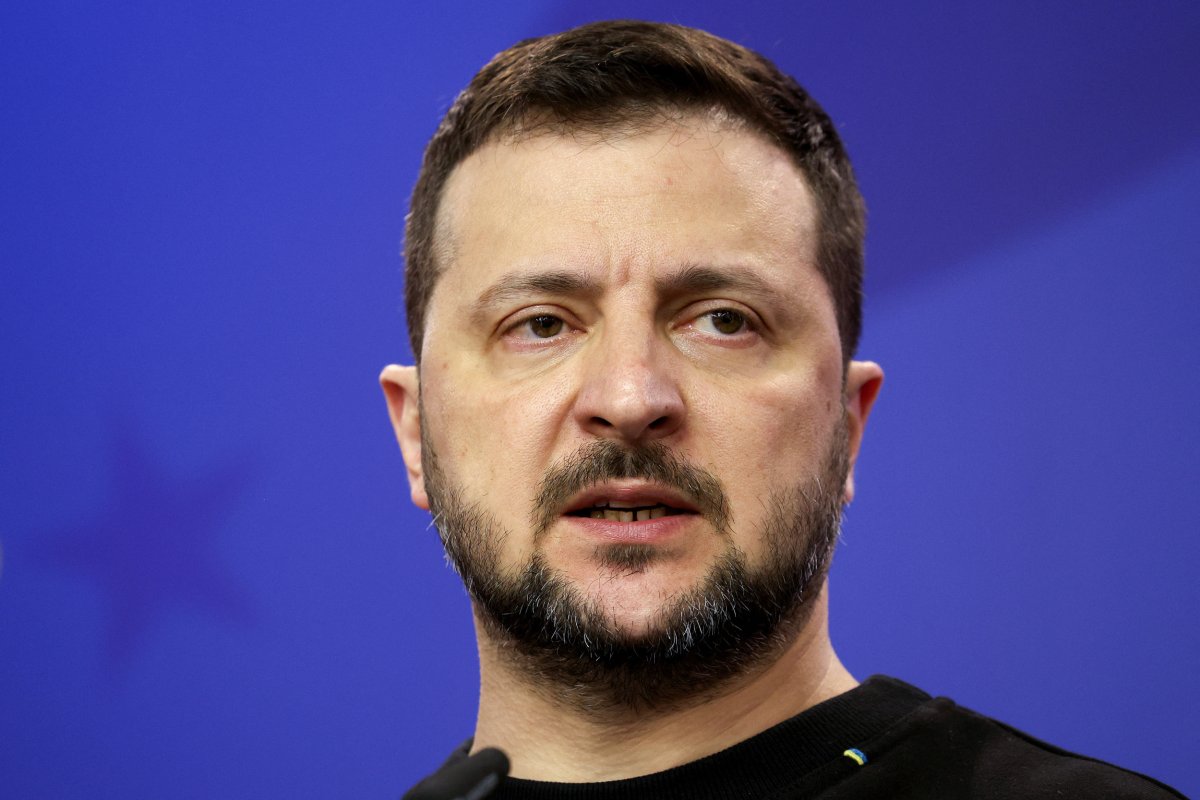The strength of Ukraine’s defensive campaign against Russia has been hanging in the balance as $60 billion in U.S. aid to Kyiv remains holed up in Congress.
Congress has failed to approve a $60 billion military aid package for Ukraine, as requested by President Joe Biden. Despite significant bipartisan support for Ukraine aid, the measure has stalled amid a series of partisan disputes over border security and other issues.
Amid the uncertainty, one viral claim suggested that Ukraine’s president, Volodymyr Zelensky, had misappropriated $75 million worth of U.S. aid to buy a luxury yacht for himself.
ADNAN BECI/AFP via Getty Images)
The Claim
A post on X, formerly Twitter, by Gunther Eagleman on February 28, 2024, viewed one million times, said: “We are $34,352,000,000,000.00 in debt.
“Zelensky’s yacht is $75,000,000.00 of that.
“No more money to Ukraine.”
The Facts
This claim is inaccurate.
U.S. aid to Kyiv is itemized and audited by the government to ensure spending in Ukraine is allocated appropriately and not misused.
The Office of Inspector General Oversight in the Department of Defense (DOD OIG) and the U.S. Agency for International Development (USAID OIG) both provide audits of the use of funding in Ukraine and investigate complaints and allegations of misuse or attempted misuse of USAID funding and DOD funding.
Part of the USAID OIG’s remit includes examining avenues for fraud and corruption in U.S-funded foreign assistance programs and providing preventive measures.
These include (but are not limited to) verification of cash assistance, using regulated money transfer agents and using security-locked beneficiary lists before they are disseminated.
The notion, therefore, that Zelensky would have managed to expense a $75 million yacht using U.S. funds, that are tightly regulated and monitored, and by doing so risk any opportunity that Ukraine may have to secure future U.S. funding is highly unlikely.
The $75 million yacht story is part of a debunked conspiracy theory based on some of Zelensky’s associates.
Multiple social media users shared claims that Zelensky used proxies to buy two yachts, called “Lucky Me” and “My Legacy,” The Associated Press reported in December.
However, as has been debunked by multiple fact-checkers, the boats that were listed have not been sold. While a Memorandum of Agreement on the sale of these two boats was shared online and mentioned the names of Zelensky’s associates, Boris Shefir and Serhiy Shefir, the company that originally produced the document said it was “no longer endorsed” by them.
The document did not mention Zelensky.
While Zelensky’s financial relationship with the Shefir brothers has been scrutinized elsewhere, there was simply no evidence produced from this previous investigation that showed any credible link between the purchase of these yachts and the Ukrainian president.
The user who posted the claim, Gunther Eagleman, has a history of making unfounded, misleading claims, some of which Newsweek has investigated.
It is also not the first time that President Zelensky has been the subject of false rumors about his expenditures. Newsweek has previously debunked claims that he owned a $20 million mansion in Florida, another multi-million dollar yacht, and that first lady Olena Zelenska spent $1.1 million on Cartier jewelry in New York.
The Ruling

False.
No evidence supports this claim. U.S. aid to Ukraine is strictly audited and regulated. Much of the funding the U.S. provides to Ukraine is based on the allocation of existing resources, not on new spending. In any case, the chances of Zelensky making such a purchase, by doing so risking any future support from the U.S. and Western allies, are pretty much nil.
While two of Zelensky’s associates were linked to the purchase of luxury yachts, other investigations found the yachts in question were on sale and no paperwork attached Zelensky to their purchase.
FACT CHECK BY Newsweek’s Fact Check team
Uncommon Knowledge
Newsweek is committed to challenging conventional wisdom and finding connections in the search for common ground.
Newsweek is committed to challenging conventional wisdom and finding connections in the search for common ground.
Credit: Source link
